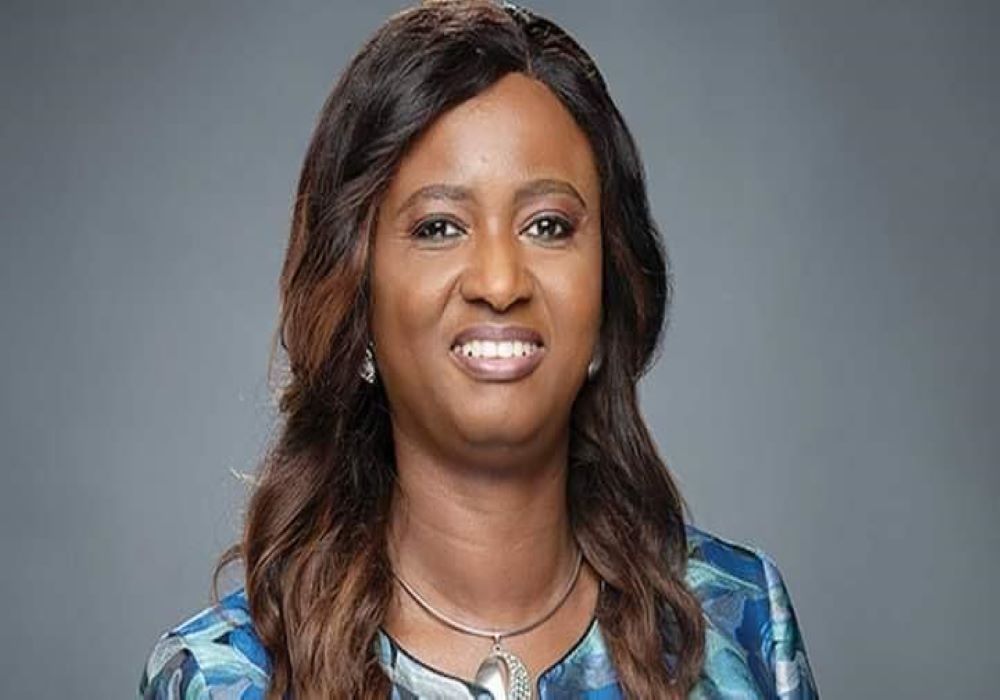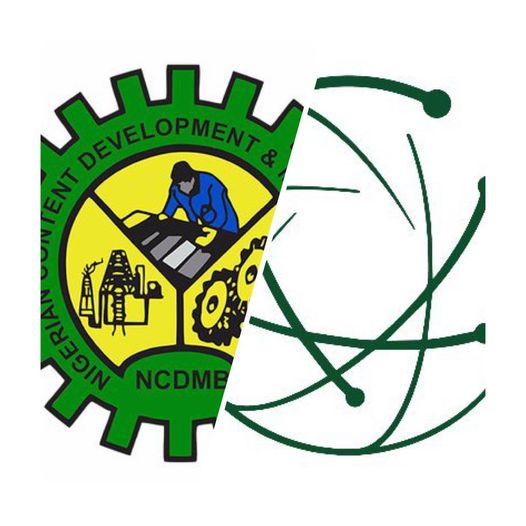Oil
Upstream business gets boost as $3.5bn Egina FPSO integration project takes off

The upstream sub-sector of the Nigerian oil and gas industry has received a major boost as the long-awaited $3.5 billion floating, production, storage and offloading (FPSO) integration project designed to support the in-country Egina oil field development was flagged off at the Lagos Deep Offshore Logistics (LADOL) base in Lagos at the weekend.
The project, which will ride on the back of the Nigerian Local Content Act, to create about 50,000 direct and indirect jobs, also has the ability to develop human capacity through skill acquisition and technology transfer.
BusinessDay findings revealed that Samsung Heavy Industries Nigeria Limited (SHI), a leading global oil and gas EPC company, and LADOL Free Trade Zone entered into a joint venture partnership to form a new company known as SHI-MCI Free Zone Enterprise, to deliver on the project.
The joint venture company would invest about $300 million to develop the Egina fabrication and integration facility for Total Upstream Nigeria Limited.
Industry stakeholders expect that the Egina facility when completed would become a hub for fabrication and integration of vessels and other marine facilities which will service the West African sub-region.
“Today marks the beginning of Africa’s first mega FPSO fabrication and integration facility that is designed to change the industrial landscape of Nigerian upstream sub-sector,” said C W Kim, managing director of SHI-MCI, during the ground breaking ceremony of the project in Lagos.
Kim stressed the commitment of SHI-MCI to work with all the relevant government agencies, including other project partners to deliver on the project in due time.
Presenting her welcome speech, Amy Jadesimi, managing director of LADOL, who disclosed that it took the indigenous logistics firm 13 years of commitment to achieve this laudable milestone, stated that the project was conceived in line with the vision of LADOL to create a wholly Nigerian platform that would take the advantages created by local content to generate thousands of jobs.
Jadesimi said the FPSO facility would transform the upstream sub-sector of oil and gas by increasing Nigeria’s fabrication, integration and steel markets.
Giving an insight into the project, Frank Ejizu, general manager of SHI Nigeria, who revealed that construction work on the project site started in August 2014 following the settlement of the earlier disagreement between both parties, also said that the fabrication and integration yard would be completed and ready for operation in October 2016.
“The first fabrication and integration work would kick-off in 2017 and SHI-MCI has sent some selected Nigerians to Korea to receive appropriate training in preparation for the take-off of the project. And the company is committed to delivering the project,” Ejizu explained.
He further said: “SHI as the EPC contractor, own 70 percent stake in the company, while LADOL owns the remaining 30 percent for the provision of a yard for building the integration facility. The facility yard would comprise of 10,000 metric tons production capacity; 2.5 million barrels of oil; 13.5 meters draught; 10.5 meters draught for the Egina project and 5,000 metric tons of heavy lifting area to be used for integration.”
BUSINESSDAY–
Oil
NNPC Targets 60% Methane Emission Reduction By 2031
The Nigerian National Petroleum Company Limited (NNPC) has unveiled a bold strategy to reduce methane emissions in the oil and gas sector by 60% by 2031, with an ultimate goal of achieving net-zero emissions by 2060.
This announcement reinforces Nigeria’s leadership role under the Global Methane Pledge initiative and its commitment to tackling climate change.
The Group Chief Executive Officer of NNPC, Mele Kyari, disclosed these plans during a meeting on Thursday with Robert Leahman, the U.S. State Department’s Global Methane Program Manager, and a delegation from Deloitte.
READ MORE: Atiku Gloats Over AUN’s Achievements Ahead Of 20th Anniversary
The discussions, held at the NNPC Towers in Abuja, focused on collaborative efforts to reduce methane emissions through innovative and sustainable practices.
“Reducing methane emissions is not just an environmental necessity but also a strategic imperative for Nigeria’s energy transition. We are leveraging partnerships to adopt global best practices and innovative solutions,” Kyari stated.
Key among these efforts is a pilot project in the Niger Delta, aimed at establishing emissions baselines, mitigating methane leaks, and promoting sustainable operations across Nigeria’s energy sector.
The project, a partnership between NNPC, Deloitte, and the U.S. Bureau of Energy Resources, will utilize data-driven methodologies to pinpoint and address methane hotspots.
Robert Leahman commended Nigeria’s proactive stance, describing it as a benchmark for other nations on the continent.
“Nigeria’s leadership under the Global Methane Pledge sets a standard for the continent. These initiatives will not only help reduce emissions but also drive sustainable development in the energy sector,” he said.
Kyari highlighted the broader benefits of addressing methane emissions, noting its significance for both environmental protection and economic efficiency.
“This collaboration is a game-changer. By addressing methane leaks, we’re reducing waste, saving costs, and protecting the environment. It’s a win-win for our economy and the planet,” he added.
Oil
FG Introduces New Incentives To Revitalize Nigeria’s Oil & Gas Industry
In a strategic move to revitalize Nigeria’s oil and gas sector, the Federal Government has unveiled two key fiscal incentives aimed at attracting investment and enhancing energy security.
The announcement was made by Mr. Wale Edun, the Minister of Finance and Coordinating Minister of the Economy on Wednesday.
The first initiative, the Value Added Tax (VAT) Modification Order 2024, introduces critical exemptions for essential energy products and infrastructure, including Diesel, Feed Gas, Liquefied Petroleum Gas (LPG), Compressed Natural Gas (CNG), Electric Vehicles, Liquefied Natural Gas (LNG) infrastructure, and Clean Cooking Equipment.
Read Also: Atiku Calls For Rotational Presidency Across Nigeria’s Geopolitical Zones
These exemptions are designed to reduce living costs for Nigerians, promote energy security, and accelerate the transition to cleaner energy alternatives.
The second initiative, the Notice of Tax Incentives for Deep Offshore Oil & Gas Production, offers new tax relief options for deep offshore exploration projects.
This measure aims to position Nigeria’s deep offshore basin as a premier destination for international oil and gas investments, boosting the country’s appeal to foreign investors.
These reforms are part of a broader set of policy initiatives, known as Policy Directives 40-42, endorsed by President Bola Ahmed Tinubu.
The directives reflect the administration’s commitment to fostering sustainable development in the energy sector and enhancing Nigeria’s competitive edge in the global oil and gas market.
Business
Tinubu set to approve ExxonMobil-Seplat oil deal, expands CNG bus initiative

By Yemie Adeoye
NIGERIA’s President Bola Tinubu has announced that the protracted ExxonMobil-Seplat upstream oil divestment will be formally approved by the Minister of petroleum within a matter of days, just as he announced his government’s intention to expand the Compress natural Gas, CNG buses initiative.
The President who stated this during his Independence day nationwide broadcast stated that the move is in line with his administration’s commitment to free enterprise, free entry and free exit in investments which is the hallmark of his administration investment policy.
“Fellow compatriots, our administration is committed to free enterprise, free entry, and free exit in investments while maintaining the sanctity and efficacy of our regulatory processes. This principle guides the divestment transactions in our upstream petroleum sector, where we are committed to changing the fortune positively. As such, the ExxonMobil Seplat divestment will receive ministerial approval in a matter of days, having been concluded by the regulator, NUPRC, in line with the Petroleum Industry Act, PIA. This was done in the same manner as other qualified divestments approved in the sector.”
The President also seized the opportunity to plead with Nigerians to be patient with his administration’s reform policies. “As your President, I assure you that we are committed to finding sustainable solutions to alleviate the suffering of our citizens. Once again, I plead for your patience as the reforms we are implementing show positive signs, and we are beginning to see light at the end of the tunnel”.
“Our energy transition programme is on course. We are expanding the adoption of the Presidential Initiative on Compressed Natural Gas for mass transit with private sector players. The Federal Government is ready to assist the thirty-six States and FCT in acquiring CNG buses for cheaper public transportation.
Fellow Nigerians, while we are working to stabilise the economy and secure the country, we also seek to foster national unity and build social harmony and cohesion. Our economy can only thrive when there is peace”. he enthused.

















